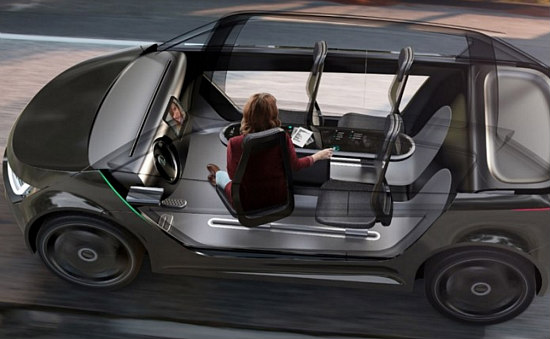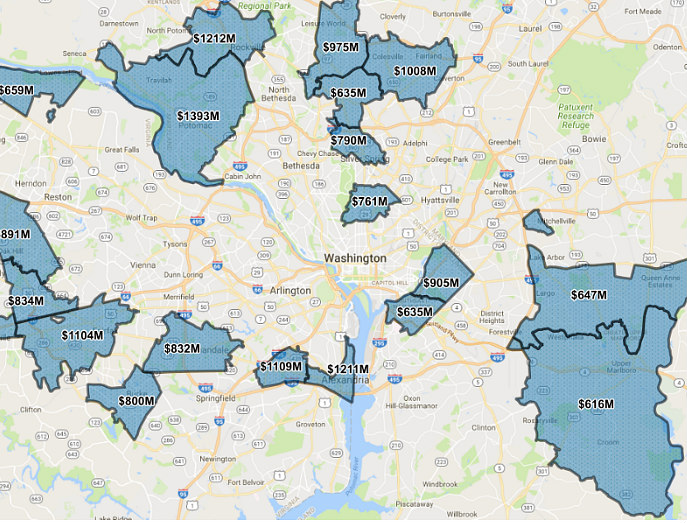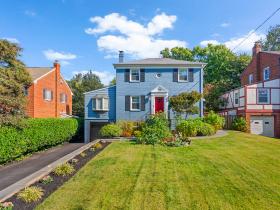What's Hot: Did January Mark The Bottom For The DC-Area Housing Market? | The Roller Coaster Development Scene In Tenleytown and AU Park
 The Tremendous Effect That Driverless Vehicles Could Have on the DC Area Housing Market
The Tremendous Effect That Driverless Vehicles Could Have on the DC Area Housing Market
✉️ Want to forward this article? Click here.

When autonomous vehicles (AV) are discussed in the same breath as real estate, the topic generally revolves around things such as how demand for parking garages at larger mixed-use developments will drop if AVs become a primary mode of transportation. However, the effect on property values might be the real story.
According to 99mph, an organization that analyzes the disruptive arrival of driverless cars, driverless vehicles will lead to a shift in residential settling patterns in the same way that the invention of mass-produced vehicles led to the development of the suburbs. Currently, homes that offer shorter commutes or proximity to public transit are considered to have a "convenience premium" built into their prices while homes with longer commutes or that are further from transit carry an "inconvenience penalty".
story continues below
loading...story continues above
99mph concludes that AVs will lead to more pleasant and, potentially, shorter commutes, which will mean that homes further away from a city center will no longer carry as much of an "inconvenience penalty". In other words, how bad is a 45-minute commute if you are reading a magazine rather than maneuvering through start-and-stop traffic?
"If someone’s painful 40 minute commute to downtown Washington, DC magically begins to feel like a 35 minute commute, a $376,000 home, the average for the DC [area] in our dataset, should be worth $19,000 more," the post claims.

99mph believes that the DC area will see $88 billion in residential property values shift between zip codes with the arrival of AVs. This is roughly 8 percent of the total residential property value in the area. The study goes on to say that 61 percent of the variance in property values is linked to proximity to the city center because a large proportion of people commute downtown to work. DC is one of the "monocentric" cities where this pattern holds true; "polycentric" cities where people drive in varying directions to get to work see less of an impact on property values.
Above is a map of the zip codes in DC that would benefit from a shift in property values post-AV adoption. In DC proper, the 20020 zip code could see a $635 million shift in property values, 20019 could see a $905 million shift and the 20011 zip code could see a $761 million shift.
The country is still at least a couple of decades away from seeing driverless cars adopted on a large scale, but the expectation of their adoption may lead to property values shifting within the next decade.
UrbanTurf reached out to the author of the study for information about the methodology; the article will be updated upon receipt.
See other articles related to: autonomous vehicles, self-driving cars
This article originally published at https://dc.urbanturf.com/articles/blog/88-billion-in-property-values-may-shift-in-dc-area-after-autonomous-vehicle/13516.
Most Popular... This Week • Last 30 Days • Ever

As mortgage rates have more than doubled from their historic lows over the last coupl... read »

The small handful of projects in the pipeline are either moving full steam ahead, get... read »

The longtime political strategist and pollster who has advised everyone from Presiden... read »

Lincoln-Westmoreland Housing is moving forward with plans to replace an aging Shaw af... read »

A report out today finds early signs that the spring could be a busy market.... read »
DC Real Estate Guides
Short guides to navigating the DC-area real estate market
We've collected all our helpful guides for buying, selling and renting in and around Washington, DC in one place. Start browsing below!
First-Timer Primers
Intro guides for first-time home buyers
Unique Spaces
Awesome and unusual real estate from across the DC Metro














